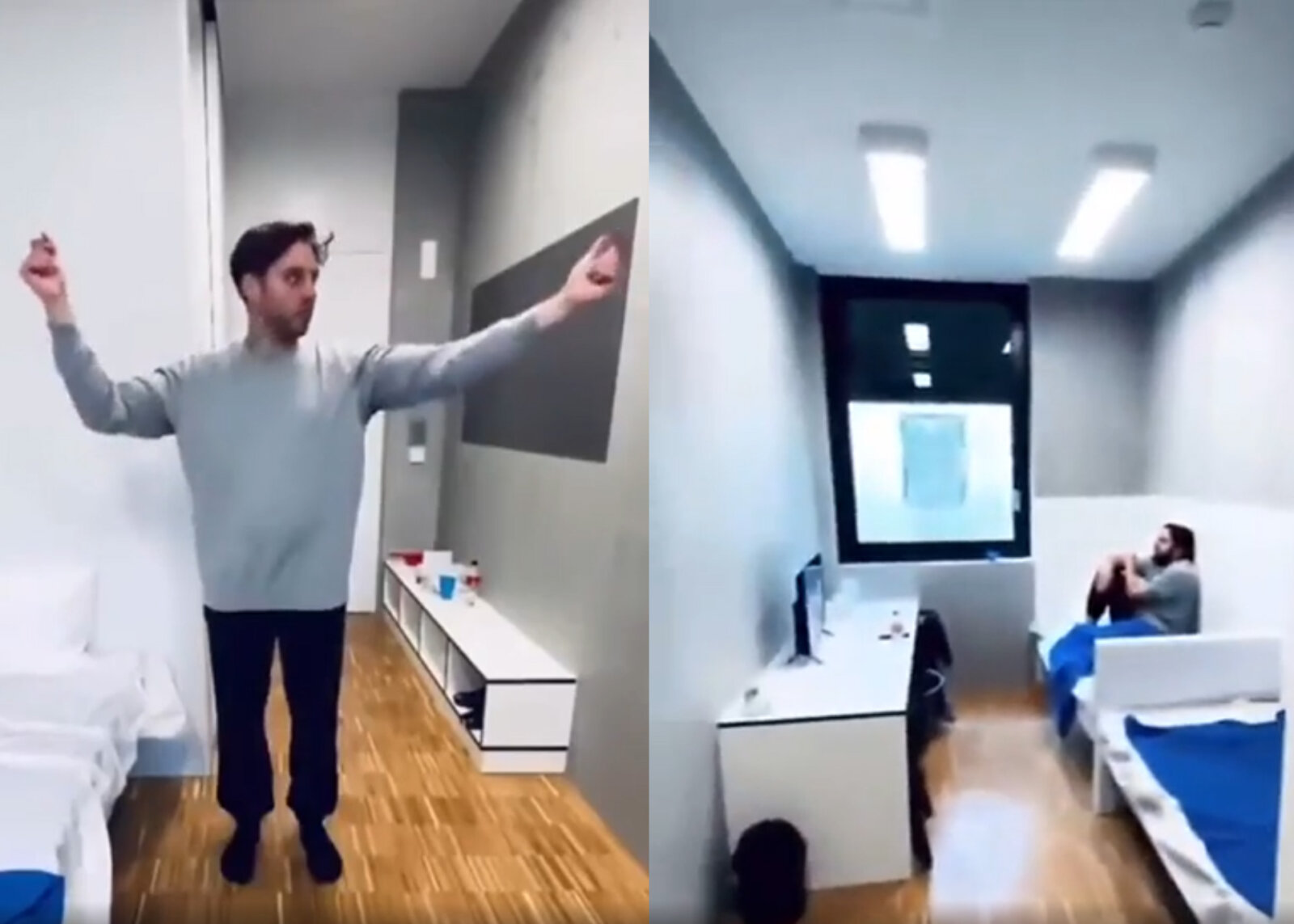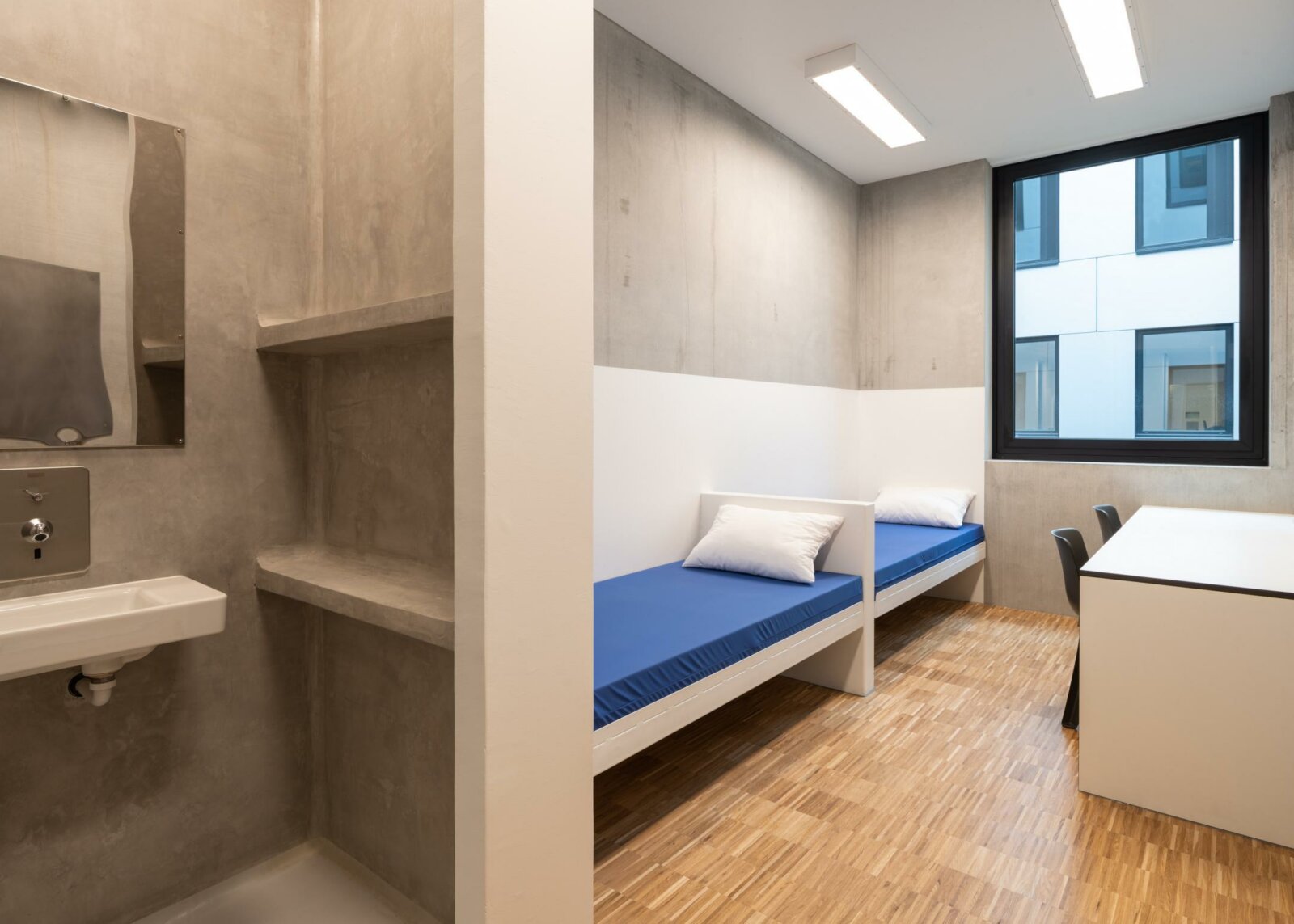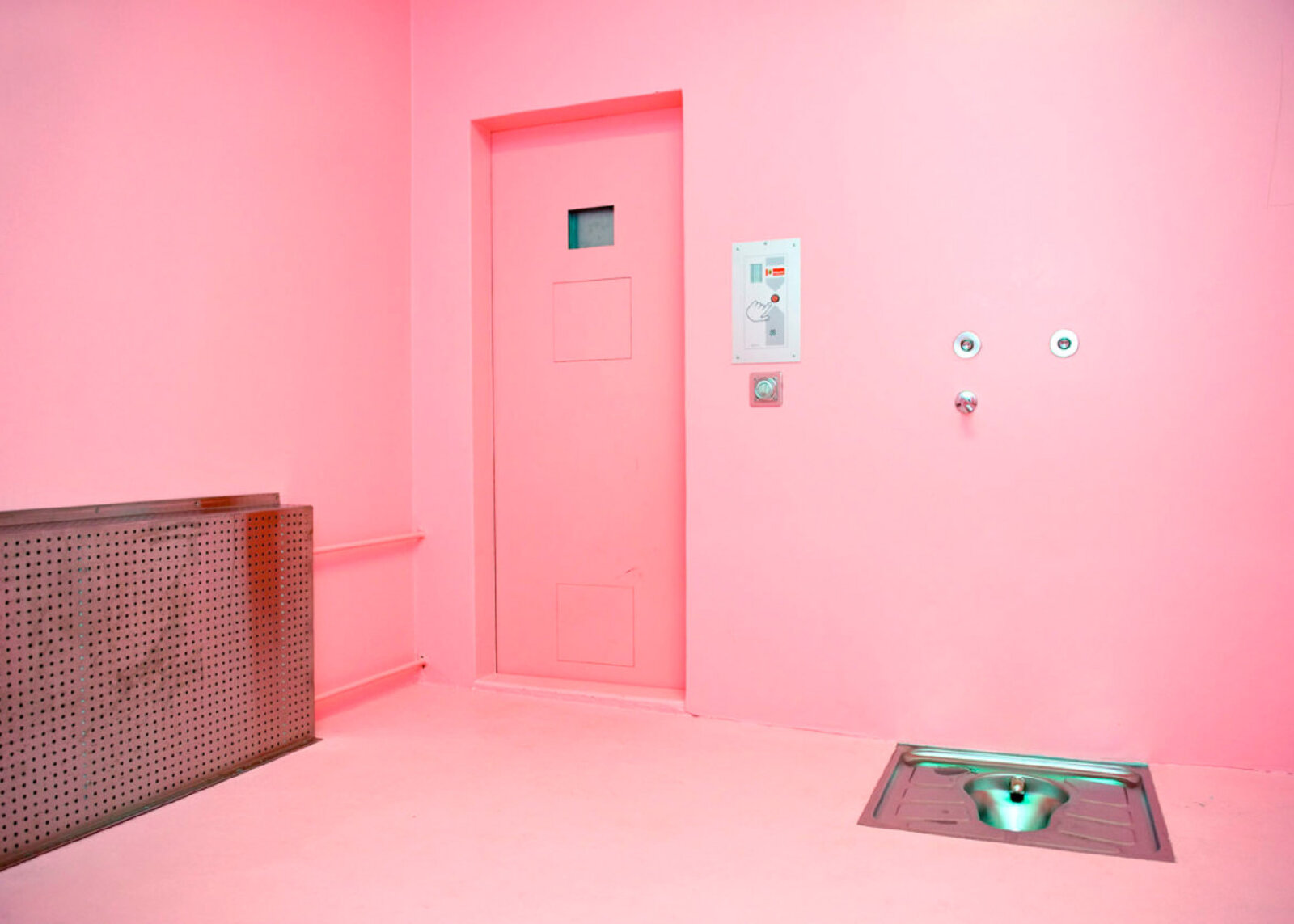Switzerland is known for its progressive incarceration approach, emphasizing rehabilitation and reintegration. The layout of Swiss prisons provides inmates with a safe and comfortable environment while helping them prepare for life after release.
After seeing a clip on Reddit about a pristine prison cell in Switzerland, I decided to explore the topic. I wondered: How are Swiss prisons different from other countries?
Are the living conditions for prisoners in Switzerland as good as the clip wants us to believe? It's our tax money being spent, after all.
Viral Reddit Video Offers Glimpse Into Swiss Prison Life
A recent Reddit post offered a glimpse inside a Swiss prison, showing conditions that shocked many viewers. The video toured a modern cell with amenities like a private bathroom, beds, a dressing table, a TV, and a kettle.
Large windows let in ample natural light and views of the surrounding greenery. The inmate filming also displayed corridors and a hole-in-the-wall that lights cigarettes automatically.
At the end of the day, he documented receiving dinner that rivaled upscale room service. The food arrived encased in gleaming silver domes, leaving viewers to imagine the quality of meals in light of the prison's other luxuries.
I was even surprised to see such a clean, comfortable facility. It looks even nicer than what I imagined and surely bears little resemblance to stereotypical prisons. The humane conditions surprised many Redditors who imagined a prison offering a dreary environment by definition.
My favorite comments:
- "That’s a 1.3m studio in SF." (MoreRamenPls)
- "As a Norwegian, I'm surprised to see two inmates in one small room." (xTrollhunter)
- "What is the crime that needs to be committed to get in there?" (Western_Oil_6418)

About The Swiss Prison System
In Swiss prisons, inmates get clean, comfortable living areas. They can access education and job training, too. These programs aim to help prisoners rejoin society after release. The focus is on rehabilitation, not just punishment.
The Swiss prison system emphasizes restorative justice. This approach repairs harm from crimes and promotes healing for all involved. Restorative justice sees crime as a social problem needing a social solution.
The goal is to rehabilitate offenders and help victims through open dialogue and accountability. In turn, this approach helps to reduce relapses after release into society.
According to data from the Federal Statistical Office, the recidivism rate of adult prisoners in Switzerland is around 23% as of 2020. This compares favorably to rates of around 60% in countries like the United States and the United Kingdom.
How Swiss Prisons Are Different From Other Countries
Swiss prisons are different from prisons in other countries in several ways. Here are some of the main differences:
Clean and comfortable living spaces: Swiss prisons provide inmates with clean and comfortable living spaces, which include their own toilet and a small bedroom with a dressing table, a TV, and a kettle. The rooms have large windows that provide natural light and a view of the surrounding greenery.
Access to educational and vocational programs: Inmates in Swiss prisons have access to educational and vocational programs that help them acquire new skills and prepare for life after release. This approach emphasizes rehabilitation and reintegration to reduce recidivism rates.
Emphasis on rehabilitation and reintegration: The Swiss prison system emphasizes rehabilitation and reintegration, focusing on reducing recidivism rates. Inmates are encouraged to take responsibility for their actions and to work towards becoming productive members of society.
Restorative justice: The Swiss prison system emphasizes restorative justice, which involves repairing the harm caused by criminal behavior and promoting healing for all parties involved. This approach is based on the belief that crime is a social problem that requires a social solution.
Living Conditions For Prisoners In Switzerland
Known for their focus on rehabilitation over punishment, Swiss prisons provide inmates with clean and comfortable living spaces. At Pöschwies prison in Regensdorf, prisoners reside in modern single or double rooms with amenities like flat-screen TVs and private showers.
Many prisons, such as Hindelbank in Bern, offer large windows with greenery views and access to outdoor garden spaces. Vocational programs allow prisoners to learn new trades like welding or gardening.
The Zurich West Prison (GZW) opened in 2022. It features airy 15 square meter rooms equipped with shelving and televisions.

Access to education is also a priority. Inmates can earn vocational certificates or high school degrees to aid reintegration into society. Creative outlets like music lessons are also offered in facilities like Saxerriet Prison.
With its spacious rooms, programming, and focus on rehabilitation, I believe that the Swiss prison model sets itself apart with a rather humane environment.
Preparing Inmates For Life Beyond Bars At Pöschwies
At Pöschwies, many inmates spend years navigating a highly structured environment with limited contact with the outside world. Recognizing the challenges that come with reentering society, the prison employs dedicated counselors to guide inmates through this crucial transition.
A Comprehensive Counseling Approach
Counselors at Pöschwies bring decades of experience, working with a diverse range of inmates. This includes those who face mental health challenges or individuals convicted of serious offenses. The counseling approach is rooted in building trust and understanding, which I believe is essential for creating a supportive relationship and fostering personal growth.
The transition back into society often begins with a meaningful ritual. Upon release, inmates are welcomed with a few words and a walk around a nearby lake. This simple ceremony marks a symbolic step from confinement to freedom. I can imagine that this brief moment of reflection means a lot to some of the inmates who are only used to the prison routine.
Counselors emphasize the importance of making autonomous decisions outside prison walls. While following rules inside is one thing, true rehabilitation is measured by the personal commitment to a law-abiding life after release.
Emotional and Social Preparation
In Switzerland, the transition from prison life to reintegration into society is managed with a focus on gradual adjustment. As inmates near the completion of their sentences, the Swiss penal system progressively grants them increased freedoms. This approach acts as a stepping stone, easing their reentry into everyday life beyond the confines of incarceration.
Preparing for life after prison also means addressing complex family relationships. Counselors often join inmates in initial family meetings, providing support and mediation when emotions run high. These reunions can be intense, requiring careful guidance to help everyone navigate past histories and build new foundations.
Life beyond bars brings unexpected emotional hurdles. I read of one former inmate who faced a difficult day marked by a tense meeting with his mother and a visit to his grandmother, who was suffering from dementia. These moments show how much emotional strength it takes to adjust to life after prison.
Setbacks During the Reintegration Process
The journey of reintegration can be fraught with obstacles, even after significant progress. One notable setback is when an individual, nearing the completion of their sentence, is entangled in new criminal allegations.
A prisoner on the brink of freedom might be accused of engaging in illicit activities such as drug trafficking. If the authorities confirm these allegations, the individual's hard-earned freedom becomes uncertain, plunging them back into custody.
Another common hurdle is involvement in violent incidents. Even within a more lenient prison environment designed to ease transition, conflicts can arise. Despite the best efforts to reintegrate prisoners into Swiss society, both internal and external factors can hinder the path to a new beginning.
Interesting Facts About Prisons in Switzerland





WHEN CAN I GO????